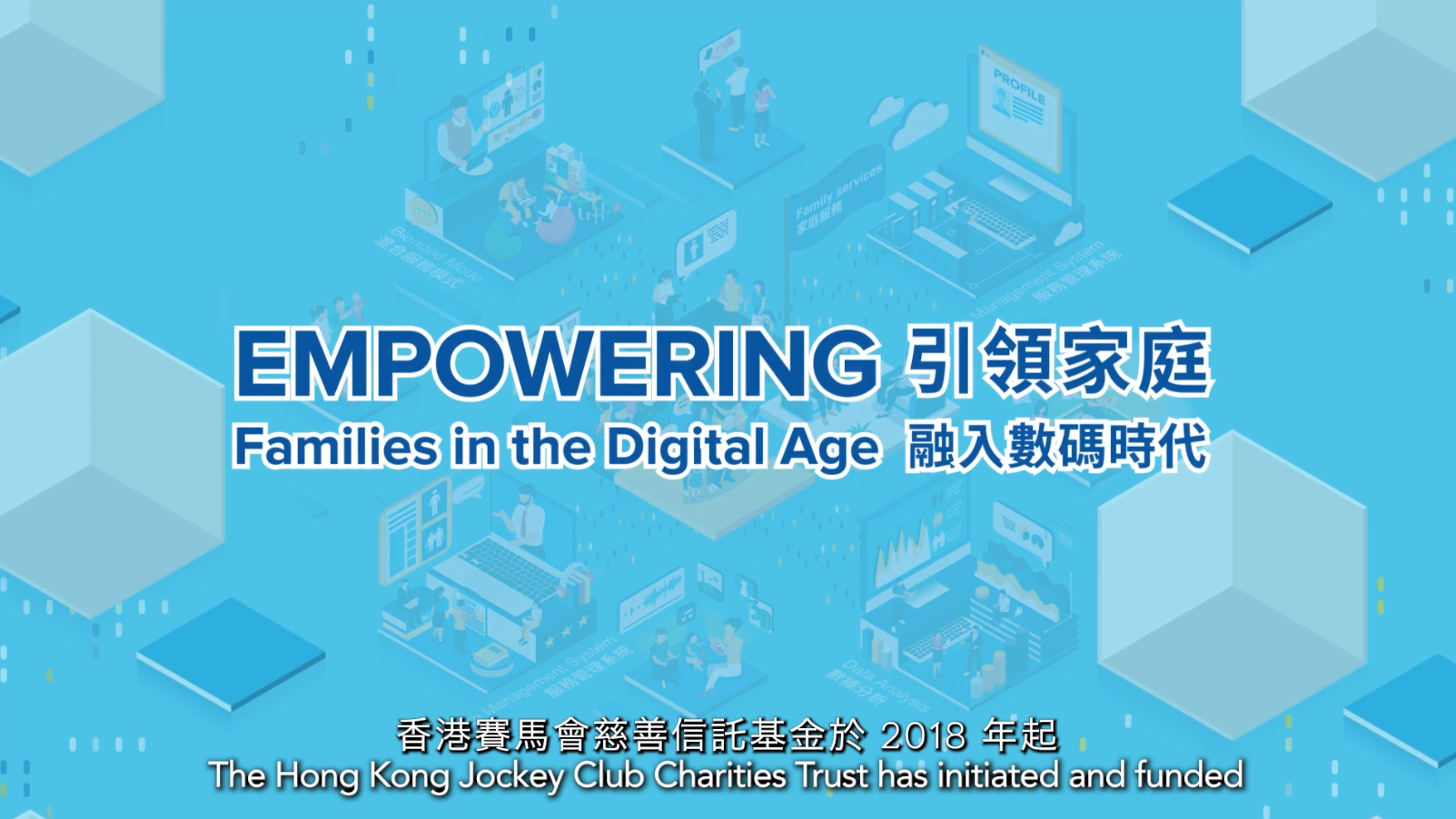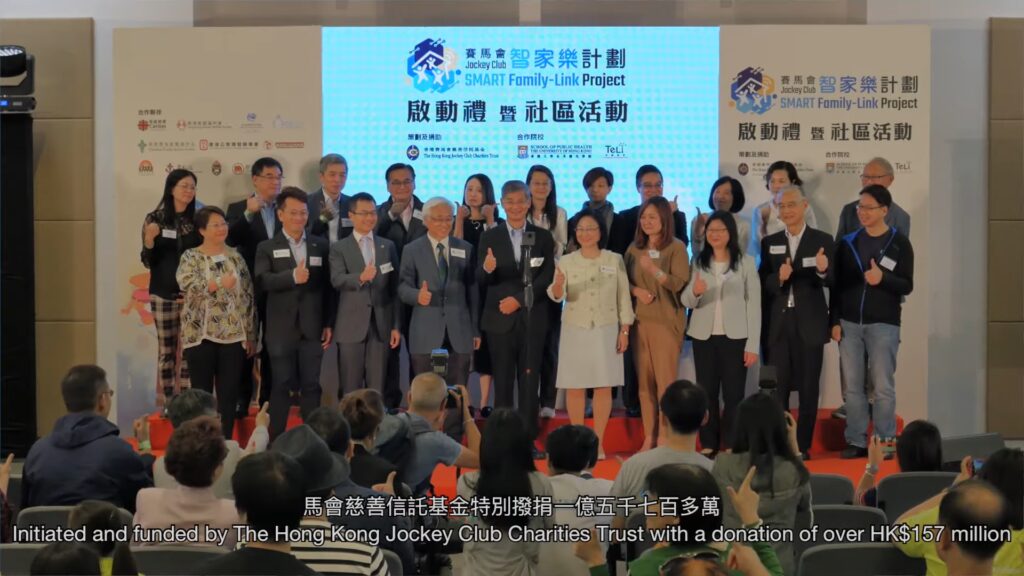The Hong Kong Jockey Club Charities Trust approved around HK$330 million to initiate the “Jockey Club SMART Family-Link Project” (JCSFL). Launched in 2018, the project aims at leveraging advanced Information and Communication Technologies (ICT) in support of more effective and innovative service delivery provided by all 26 NGO-operated Integrated Family Service Centres (IFSCs) and Integrated Services Centres (ISCs) to promote family well-being, and enhancing the sector capacity in the use of technology and data for family service innovations that can respond to emerging service needs.
Project Overview
Through cross-sectoral collaboration between NGOs and academia, JCSFL aims to:
Project Components

Service Management System (i-Connect)
by the team of Department of Computer Science, School of Computing and Data Science, HKU
i-Connect provides NGOs a novel solution for family service management, covering client information system, casework, groups and programmes, assessment tools, statistical reports, and other administrative functions. The system helps to reduce manual input and administrative work, facilitate early identification of at-risks cases and perform data analysis.

Data Analysis
by the team of Department of Computer Science, School of Computing and Data Science, HKU and School of Nursing, HKU
“Data science for social good” is an emerging big data technology for harnessing insights about user needs, resource planning, and service efficiency in the social sector. The project team will build a state-of-the-art platform, known as the Data Analytics System (DAS), for supporting the analysis and visualisation of various data sources, such as i-Connect, demographics, and maps. DAS aims to strengthen the capability of NGO supervisors and frontline workers in data analytics, by developing user-friendly and intelligent data dashboards customised to their needs, as well as novel technologies such as natural language processing.
With the experience of agency data analytics in Phase 1 of JCSFL Project, the project team aim to further combine the agency level data to:
- Understand the service recipient profiles;
- Understand the pattern and distribution of family problems and case nature;
- Understand the complex family problems;
- Explore the protective and risk factors of family problems, complex problems and case nature.

Blended Mode
by the team of Department of Social Work, HKBU and Department of Social Work and Social Administration, HKU
The project team will endeavour to facilitate IFSCs to develop innovative blended modes of services. Given the unique nature of localised family needs, the choice of innovative service or intervention, and the training and delivery of the service or intervention will be conducted by individual IFSC centres and their respective agencies.
The project team will organise training sessions on skills in conducting evidence-based practice research; facilitate IFSCs to conduct blended mode evidence-based intervention programmes to help families in Hong Kong; systematically collect and disseminate practice evidence to professionals in local and international conferences relating to family work.

Capacity Building
by the team of Department of Social Work, HKBU
The project team develops an E-Resource hub, known as the i-Hub to support the advancement of family services in Hong Kong, as well as to develop innovative family services, through the use of technology and data. This is achieved by gathering practical resources and cutting-edge concepts on family services, research findings from both local and international sources, and evidence-based practices in the field.
Training will be provided to social workers to build up competence in evidence-based practice on digital services, and standardised protocols and guidelines for blended mode of practices in IFSCs will be disseminated.
Project Videos
Project Progress and Impacts
2018 – 2022
Phase 1 Direct Beneficiaries
35,706
cases managed
218,800
community events attendance
173,000
service users benefited
2,000
sessions of technology-assisted programmes
2022 – 2025
Phase 2 Direct Beneficiaries (as of Jun 2025)
13
innovative intervention models developed
128,000
community events attendance
197,000
service users benefited
Capacity building programme for
2,900
family service workers
200
professional-to-be
Key Outcomes (as of September 2024)
%
have increased competency (knowledge and skills) in providing blended mode of services.
%
are more confident in providing blended mode of services to families.
%
have increased use of data for social work practice and service planning.
%
agreed that the data insights enabled them to make informed decision leading to improved quality in service delivery.
%
satisfied with diversified mode of intervention and communication.
%
reported increased use of ICT to enhance family communication.
NGOs’ feedback on the impact of JCSFL project



